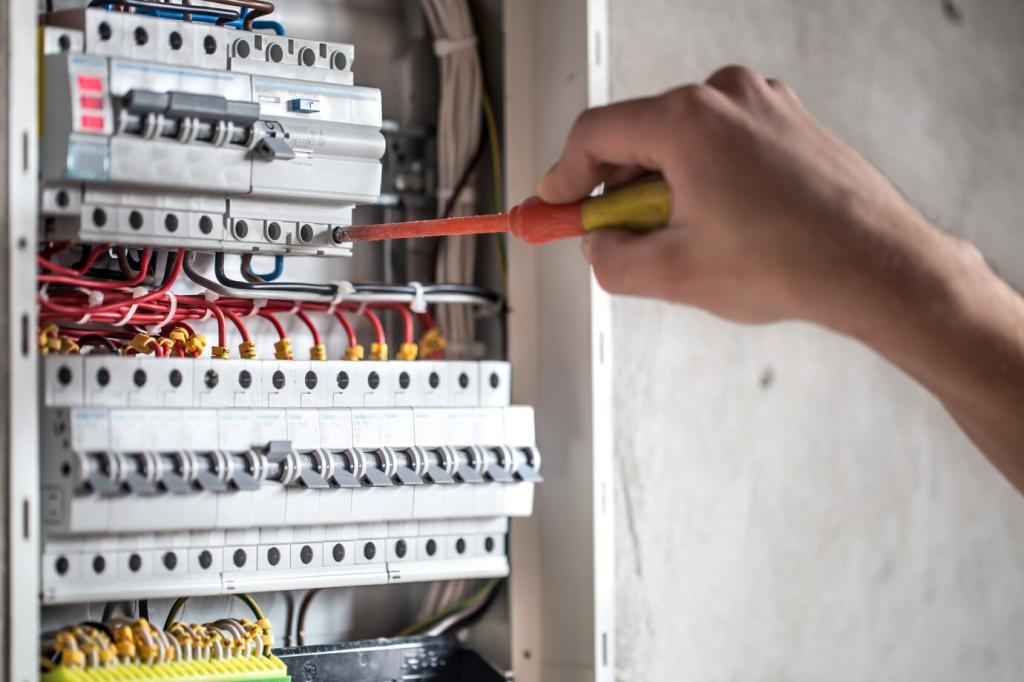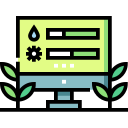
Smart Irrigation System Configuration
Discover the transformative potential of smart irrigation systems and how their proper configuration enables efficient, sustainable, and data-driven water management for landscapes, gardens, and agricultural fields. By embracing intelligent technologies, you can automate watering schedules, optimize water consumption, and contribute to environmental conservation while ensuring lush, healthy plant growth.
Understanding the Core Components
Sensors and Data Collection
Sensors are at the heart of any smart irrigation system, gathering real-time information about soil moisture, temperature, humidity, and even sunlight exposure. These devices allow the system to continuously assess the current needs of plants and adjust watering schedules accordingly. By collecting accurate and granular data from the environment, the system can prevent both overwatering and underwatering, safeguarding plant health and ensuring that resources are used judiciously. The data gathered by sensors also provides valuable insights for optimizing irrigation routines over time, leading to smarter, more responsive water management.
Control Units and Connectivity
The control unit acts as the command center, receiving data from multiple sensors and translating it into actionable instructions for the irrigation valves. Modern control units are equipped with wireless connectivity options—such as Wi-Fi, Zigbee, or Bluetooth—enabling seamless access and configuration from smartphones, computers, or remote dashboards. This connectivity not only facilitates real-time monitoring but also empowers users to tweak schedules, run diagnostics, and receive instant notifications about system status. The integration with broader smart home or farm networks enhances the overall efficiency and adaptability of the irrigation solution.
Automated Valves and Actuators
Automated valves and actuators represent the physical mechanism that delivers water to specific zones as directed by the control unit. These components are engineered for precision, allowing for granular adjustments in water flow and timing. The intelligent operation of these valves ensures that each area receives just the right amount of moisture based on sensor feedback and programmed schedules. Their reliability and responsiveness are critical to translating system intelligence into real-world resource conservation and enhanced plant care.
Zone Mapping and Segmentation
Zone mapping divides the landscape into distinct areas, each characterized by its specific plant types, soil composition, sunlight exposure, and irrigation needs. An effective zoning plan allows the system to customize watering strategies for each segment, ensuring optimal moisture levels and minimizing waste. By understanding the demands of different zones, the system can prioritize water delivery to where it’s needed most, even accommodating seasonal or weather-based variations. Proper segmentation enhances flexibility and scalability, accommodating garden beds, lawns, shrubs, or crop rows within a unified smart framework.
Sensor Placement Strategy
Accurate sensor placement is crucial for collecting representative data from each zone. Sensors should be strategically located to reflect the moisture and microclimate variations experienced by different plants. Placing sensors too close to irrigation emitters or in atypical soil can result in misleading readings, thus affecting the effectiveness of the whole system. A well-executed sensor strategy ensures that control units make informed decisions based on conditions across the entire landscape, ultimately delivering precision irrigation and preventing spotty or inconsistent growth.
Irrigation Method Selection
Choosing the right method of water delivery—such as drip irrigation, sprinklers, or soaker hoses—greatly impacts overall system performance and efficiency. Each method comes with its own advantages, suited to specific plant types and soil conditions. For example, drip systems are ideal for targeting root zones with minimal evaporation, while sprinklers are suitable for covering larger grass areas. Integrating these methods with smart controls allows for fine-tuning of delivery rates and patterns, marrying the strengths of traditional irrigation techniques with the intelligence of modern automation.
Software Configuration and Integration
01
Schedule Programming and Customization
One of the pivotal advantages of smart irrigation is the ability to program customized watering schedules that align with the unique preferences of the landscape and the changing seasons. Through easy-to-use interfaces, users can establish basic routines or take advantage of advanced options such as weather-triggered adjustments and adaptive algorithms. These schedules can be set to precisely coordinate watering during optimal times of day to reduce evaporation and maximize absorption. Such programming ensures that the system responds both to predictable patterns and real-time data, offering unmatched control and water savings.
02
Integration with Environmental Data Feeds
Integrating your smart irrigation system with online weather services and environmental data feeds allows the software to anticipate rainfall, temperature changes, and drought conditions. This proactive approach further refines the watering schedule, automatically suspending or reducing irrigation when rain is forecasted and ramping up during dry spells. By leveraging these external data sources, the system becomes capable of genuine predictive management, further reducing labor and resource consumption while maintaining healthy, resilient landscapes.
03
Mobile Access and Remote Monitoring
Modern smart irrigation platforms feature mobile apps and web dashboards that enable users to monitor and control their systems from virtually anywhere. These applications provide real-time updates on soil moisture, water usage statistics, and even maintenance alerts, making it easy to stay informed and intervene when necessary. Remote access is particularly beneficial for property managers, farmers, or tech-savvy homeowners who require flexibility, responsiveness, and peace of mind. With mobile access, the full functionality of your irrigation system is always at your fingertips.
